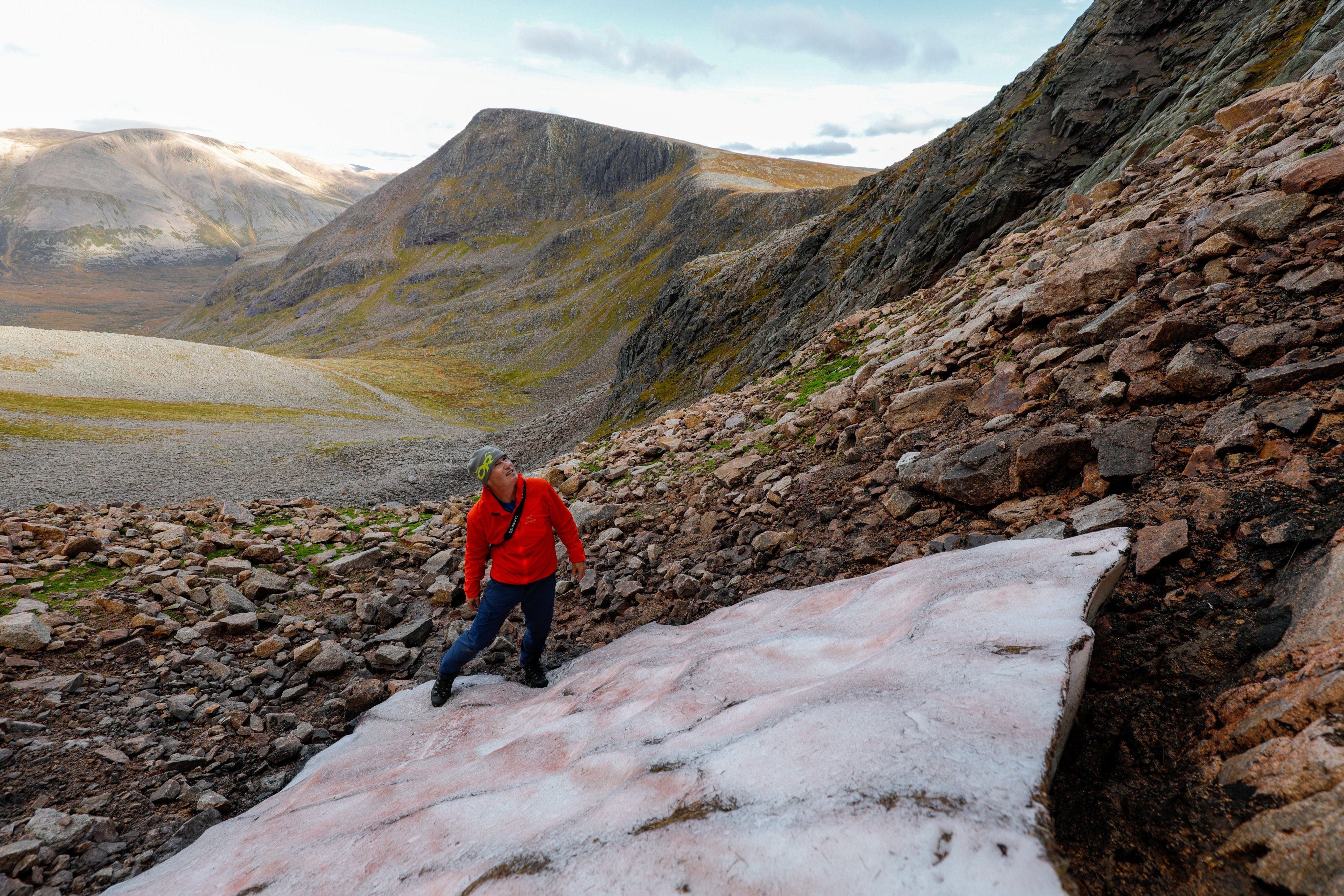UK’s longest lasting snow patch has melted away
The ice patch, known as the Sphinx, has in the past survived for decades without melting

Your support helps us to tell the story
From reproductive rights to climate change to Big Tech, The Independent is on the ground when the story is developing. Whether it's investigating the financials of Elon Musk's pro-Trump PAC or producing our latest documentary, 'The A Word', which shines a light on the American women fighting for reproductive rights, we know how important it is to parse out the facts from the messaging.
At such a critical moment in US history, we need reporters on the ground. Your donation allows us to keep sending journalists to speak to both sides of the story.
The Independent is trusted by Americans across the entire political spectrum. And unlike many other quality news outlets, we choose not to lock Americans out of our reporting and analysis with paywalls. We believe quality journalism should be available to everyone, paid for by those who can afford it.
Your support makes all the difference.The UK’s longest lasting patch of snow has melted away for only the eighth time in 300 years, experts have said.
The ice patch on the mountain Braeriach in the Cairngorms has been melting away far more frequently in the past 20 years than ever before.
The patch, nicknamed the Sphinx, shrank to the size of an A4 piece of paper in recent weeks before finally disappearing.
Expert Iain Cameron has been studying snow patches in Scotland for 25 years. He documented the patch disappearing and said climate change was a likely factor.
According to records, the Sphinx previously melted fully in 1933, 1959, 1996, 2003, 2006, 2017 and 2018, the BBC reported.
Mr Cameron told the news organisation that the Sphinx was the UK’s “most durable” snow patch.
He said: “That is being challenged because it is disappearing more often.
“What we are seeing from research are smaller and fewer patches of snow. Less snow is falling now in winter than in the 1980s and even the 1990s.”
Iain Cameron collaborated with the late Dr Adam Watson in studying the Scottish mountains. Dr Watson was instrumental in gathering evidence from the generations of people who have worked in and visited the Cairngorms.
He established that the Sphinx ice patch has only melted away a handful of times in the last 300 years.
Data Mr Cameron has helped to gather shows the decline of year-round snow patches in Scotland over the past couple of decades.
In the 25 years from 1974 a snow survey at Glenshee produced a mean score of 1,218 snow patches visible on July 1. The mean figure has fallen to 465 this century, with the number of visible snow patches falling to 58 in 2017.
Lauren McCallum, from climate campaign group Protect Our Winters, said that the Cairngorms need to be protected from increased global warming.
She said: “We have to maintain a healthy temperature for our ecosystems and communities to survive.”
In last years’ report for the Cairngorms National Park Authority, researchers found that there had been a decrease in the observed average snow depth in the park since records began.
The mean snow depth per month had decreased in January and February since 1983, when information was first recorded.
Scientists reported that “for all months there is a clear increasing warming trend in observed maximum and minimum temperature between 1960 and 2019.”
Join our commenting forum
Join thought-provoking conversations, follow other Independent readers and see their replies
Comments